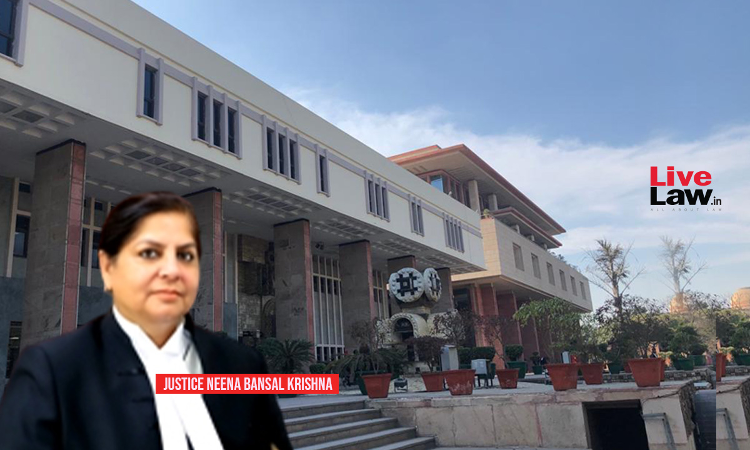- Home
- /
- High Courts
- /
- Delhi High Court
- /
- 'Cognisance' Of FIR Against Gang...
'Cognisance' Of FIR Against Gang Member Enough To Invoke MCOCA, Conviction Not Required: Delhi High Court
LIVELAW NEWS NETWORK
21 Sept 2025 6:30 PM IST
The Delhi High Court has made it clear that the stringent Maharashtra Control of Organised Crime Act, 1999 can be invoked if a Magistrate takes cognizance of two or more FIRs against a person as 'member of the Gang' and there is no pre-condition that such FIRs should have resulted in conviction.Justice Neena Bansal Krishna made the observation while dealing with a bail application moved by...
The Delhi High Court has made it clear that the stringent Maharashtra Control of Organised Crime Act, 1999 can be invoked if a Magistrate takes cognizance of two or more FIRs against a person as 'member of the Gang' and there is no pre-condition that such FIRs should have resulted in conviction.
Justice Neena Bansal Krishna made the observation while dealing with a bail application moved by a MCOCA accused, lodged in Judicial custody for more than 6 years.
Petitioner claimed he was implicated falsely in a 2018 FIR for murder conspiracy and on the basis of the said FIR, MCOCA was wrongly invoked by portraying him a member of organized crime.
Additionally, he was implicated in three more cases out of which in one, his sentence was suspended, in second he was acquitted and in the third, no substantial role has been attributed to him and he is likely to be acquitted.
State on the other hand claimed that the Petitioner and other gang members were involved in a number of sensational crimes including broad daylight shootouts in gang rivalry, gruesome and inimical murders of witnesses and others, attempt to murders, extortions from businessmen under fear of death, offences under the Arms Act, etc.
At the outset the High Court observed that to constitute an offence under MCOCA, requirement is that there must be two or more FIRs as members of the Gang in which Charge-Sheet has been filed and cognizance taken.
“Some of the cases may have ended in acquittal which is of little consequence for invoking (MCOCA)...This aspect is also evident from the fact that conspicuously the requirement under MCOCA is of taking cognizance and does not talk about the conviction/ acquittal,” it said.
So far as bail under MCOCA is concerned, the Court said that an accused must satisfy twin conditions provided in Section 21(4)— i.e., a finding by the Court that it is satisfied that there are reasonable grounds for believing that he is not guilty of such offence and secondly, that he is not likely to commit any offence while on Bail.
In the present case, the Court noted there have been four FIRs against the Petitioner as a member of the gang, and six individual FIRs.
From the material on record, the Court also found “propensity” of the Petitioner to commit crime and silence witnesses.
As such, it refused bail.
On Petitioner's submissions over prolonged pre-trial detention, the Court said, “…while delay in trial definitely impinges on the Right of liberty of the accused under Article 21 of Constitution of India, but the corresponding societal interests need to be balanced for which the gravity and seriousness of offences; whether the trial is not progressing and also the number of witnesses, become significant.”
Appearance: Mr. Murari Tiwari, Mr. Rahul Kumar, Mr. Sarthak Singh and Ms. Indira Murthy, Advocates for Petitioner; Mr. Sanjeev Bhandari, ASC (Crl.) for the State with Mr. Arjit Sharma and Ms. Sakshi Jha, Advocates with SI Devendra Rawat, Cell/NDR/New Delhi.
Case title: Umesh @ Kala v. State
Citation: 2025 LiveLaw (Del) 1158
Case no.: BAIL APPL. 1407/2025



